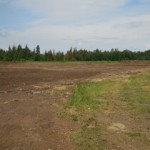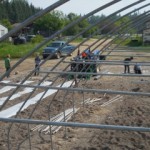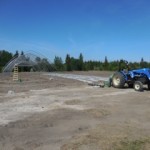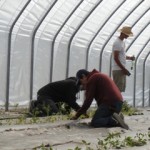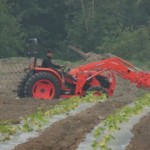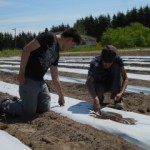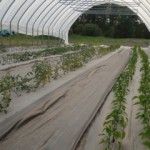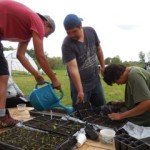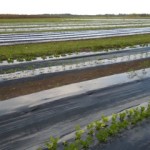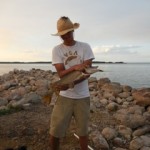This past summer, after 3 years of working with the U of Saskatchewan, U of the Arctic, U of Alaska and the SK Ministry of Agriculture, funding was finally approved for several season extension projects in northern Saskatchewan First Nation communities. What began as a conversation about food sovereignty and the potential role of high tunnels to reliably grow long season crops for isolated northern communities has developed into at least 4 market gardens with one to four high tunnels each.
The Cree community of Cumberland House led the way and invested in its own farm before funding was approved. With the help of my friend and fellow market farmer Murray Gray, they are now in their third year of growing. I went up this summer to help them expand from six acres of crops and one high tunnel, to sixteen acres of crops with 4 high tunnels.
At Ile-a-La-Crosse, the only vegetables currently available were sold in town at a Hudson Bay Company store at outrageous prices. The closest full-sized grocery store is in Port Albert, 4.5 hours away. This summer we installed new high tunnels and planted about two acres of organic vegetables on a new market farm there. Strawberries, cantaloupe, tomatoes, potatoes, peppers, beans, peas, carrots, lettuces and herbs were among the first things planted. The crops will be sold at a farm stand and at a local market. Congratulations to young growers Jeremy, Cyrol, Brayden for their work to bring delicious fresh vegetables and real food security to their neighbors in Ile-a-La-Crosse.
Several other northern communities have already expressed interest in building market farms to supply their own towns, and also as an economic driver for their communities. With high tunnels and some practical farming knowledge, they can become profitable fruit and vegetable growers for mining communities that are even further north.
In areas where there are few prospects for jobs, teaching people to grow their own food not only ensures their food security, but improves their economic security and alleviates significant social stresses. I look forward to continuing to grow this market farm incubator program in this region, and hopefully others. Please let me know if you would like to become involved, or if you are interested in starting up a market farm of your own.
(And yes, the fishing was awesome!)
